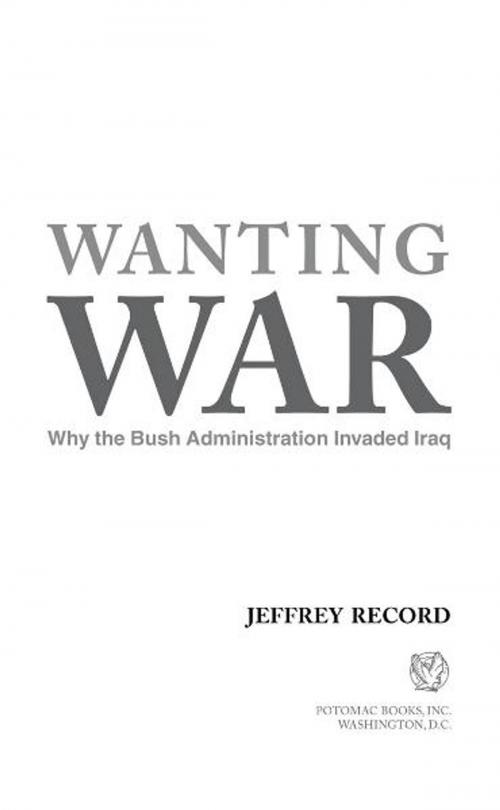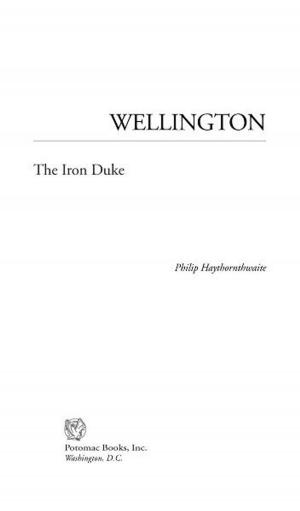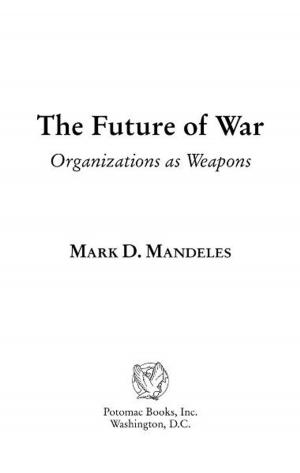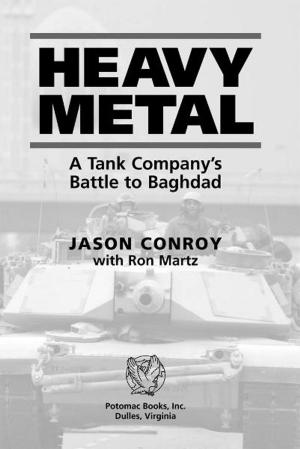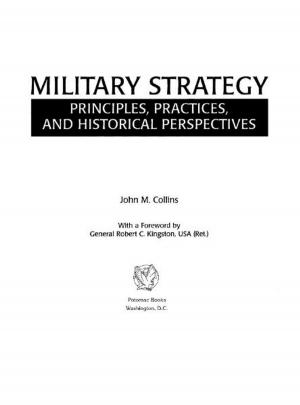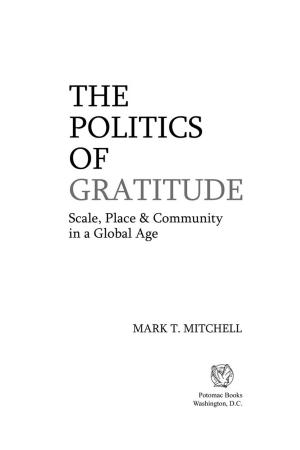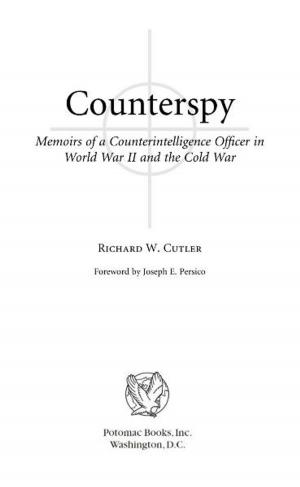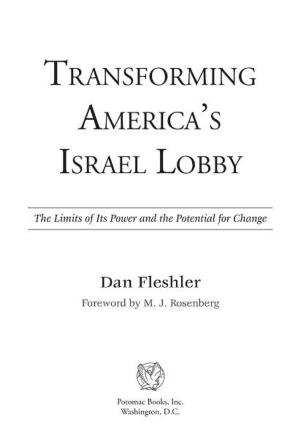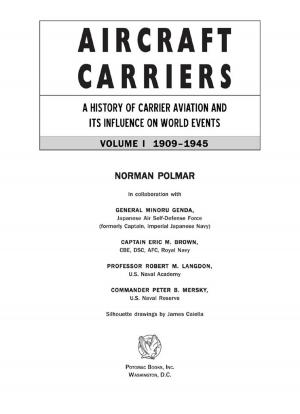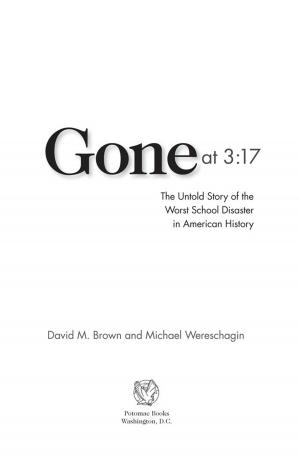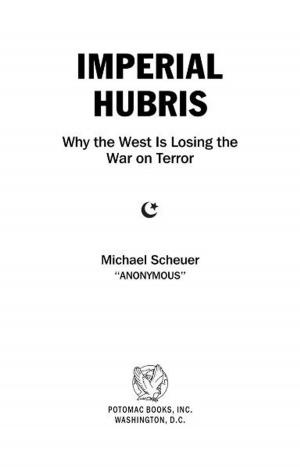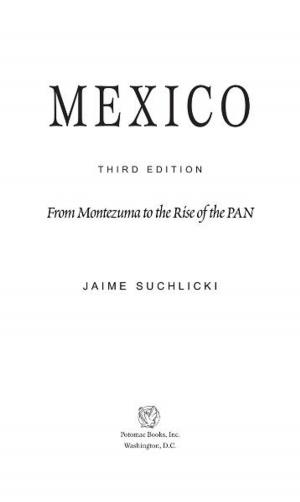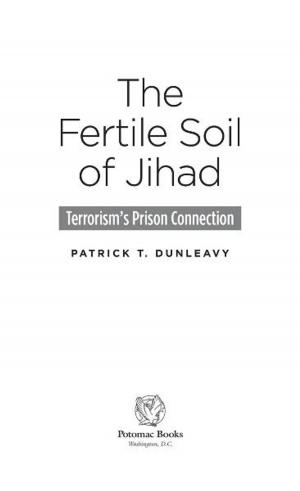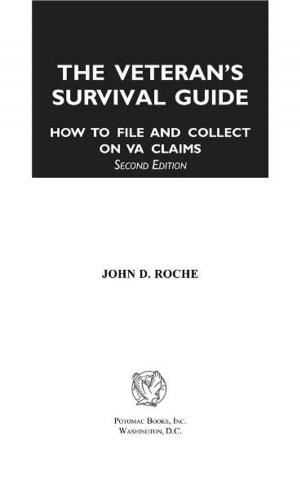Wanting War: Why the Bush Administration Invaded Iraq
Nonfiction, Social & Cultural Studies, Political Science, International, International Relations, History, Military, United States| Author: | Jeffrey Record | ISBN: | 9781597975902 |
| Publisher: | Potomac Books Inc. | Publication: | January 31, 2010 |
| Imprint: | Language: | English |
| Author: | Jeffrey Record |
| ISBN: | 9781597975902 |
| Publisher: | Potomac Books Inc. |
| Publication: | January 31, 2010 |
| Imprint: | |
| Language: | English |
Wanting War is the first comprehensive analysis of the often contradictory reasons why President George W. Bush went to war in Iraq and of the war's impact on future U.S. armed intervention abroad. Though the White House sold the war as a necessity to eliminate an alleged Iraqi threat, other agendas were at play.
Drawing on new assessments of George W. Bush's presidency, recent memoirs by key administration decision makers, and Jeffrey Record's own expertise on U.S. military interventions since World War II, Wanting War contends that Bush's invasion of Iraq was more about the arrogance of post–Cold War American power than it was about Saddam Hussein. Ultimately, Iraq was selected not because it posed a convincing security threat but because Baghdad was militarily helpless. Operation Iraqi Freedom was a demonstration of American power, especially the will to use it.
Ironically, as Record points out, a war launched to advertise American combativeness is likely to lead U.S. foreign policymakers and military leaders to be averse to using force in all but the most favorable circumstances. But this new respect for the limits of America's conventional military power, especially as an instrument of ffecting political change in foreign cultures, and for the inherent risks and uncertainties of war, may prove to be one of the Iraq War's few positive legacies. Record argues that the American experience in Iraq ought to be a cautionary tale for those who advocate for further U.S. military action.
Drawing on new assessments of George W. Bush's presidency, recent memoirs by key administration decision makers, and Jeffrey Record's own expertise on U.S. military interventions since World War II, Wanting War contends that Bush's invasion of Iraq was more about the arrogance of post–Cold War American power than it was about Saddam Hussein. Ultimately, Iraq was selected not because it posed a convincing security threat but because Baghdad was militarily helpless. Operation Iraqi Freedom was a demonstration of American power, especially the will to use it.
Ironically, as Record points out, a war launched to advertise American combativeness is likely to lead U.S. foreign policymakers and military leaders to be averse to using force in all but the most favorable circumstances. But this new respect for the limits of America's conventional military power, especially as an instrument of ffecting political change in foreign cultures, and for the inherent risks and uncertainties of war, may prove to be one of the Iraq War's few positive legacies. Record argues that the American experience in Iraq ought to be a cautionary tale for those who advocate for further U.S. military action.
Wanting War is the first comprehensive analysis of the often contradictory reasons why President George W. Bush went to war in Iraq and of the war's impact on future U.S. armed intervention abroad. Though the White House sold the war as a necessity to eliminate an alleged Iraqi threat, other agendas were at play.
Drawing on new assessments of George W. Bush's presidency, recent memoirs by key administration decision makers, and Jeffrey Record's own expertise on U.S. military interventions since World War II, Wanting War contends that Bush's invasion of Iraq was more about the arrogance of post–Cold War American power than it was about Saddam Hussein. Ultimately, Iraq was selected not because it posed a convincing security threat but because Baghdad was militarily helpless. Operation Iraqi Freedom was a demonstration of American power, especially the will to use it.
Ironically, as Record points out, a war launched to advertise American combativeness is likely to lead U.S. foreign policymakers and military leaders to be averse to using force in all but the most favorable circumstances. But this new respect for the limits of America's conventional military power, especially as an instrument of ffecting political change in foreign cultures, and for the inherent risks and uncertainties of war, may prove to be one of the Iraq War's few positive legacies. Record argues that the American experience in Iraq ought to be a cautionary tale for those who advocate for further U.S. military action.
Drawing on new assessments of George W. Bush's presidency, recent memoirs by key administration decision makers, and Jeffrey Record's own expertise on U.S. military interventions since World War II, Wanting War contends that Bush's invasion of Iraq was more about the arrogance of post–Cold War American power than it was about Saddam Hussein. Ultimately, Iraq was selected not because it posed a convincing security threat but because Baghdad was militarily helpless. Operation Iraqi Freedom was a demonstration of American power, especially the will to use it.
Ironically, as Record points out, a war launched to advertise American combativeness is likely to lead U.S. foreign policymakers and military leaders to be averse to using force in all but the most favorable circumstances. But this new respect for the limits of America's conventional military power, especially as an instrument of ffecting political change in foreign cultures, and for the inherent risks and uncertainties of war, may prove to be one of the Iraq War's few positive legacies. Record argues that the American experience in Iraq ought to be a cautionary tale for those who advocate for further U.S. military action.
